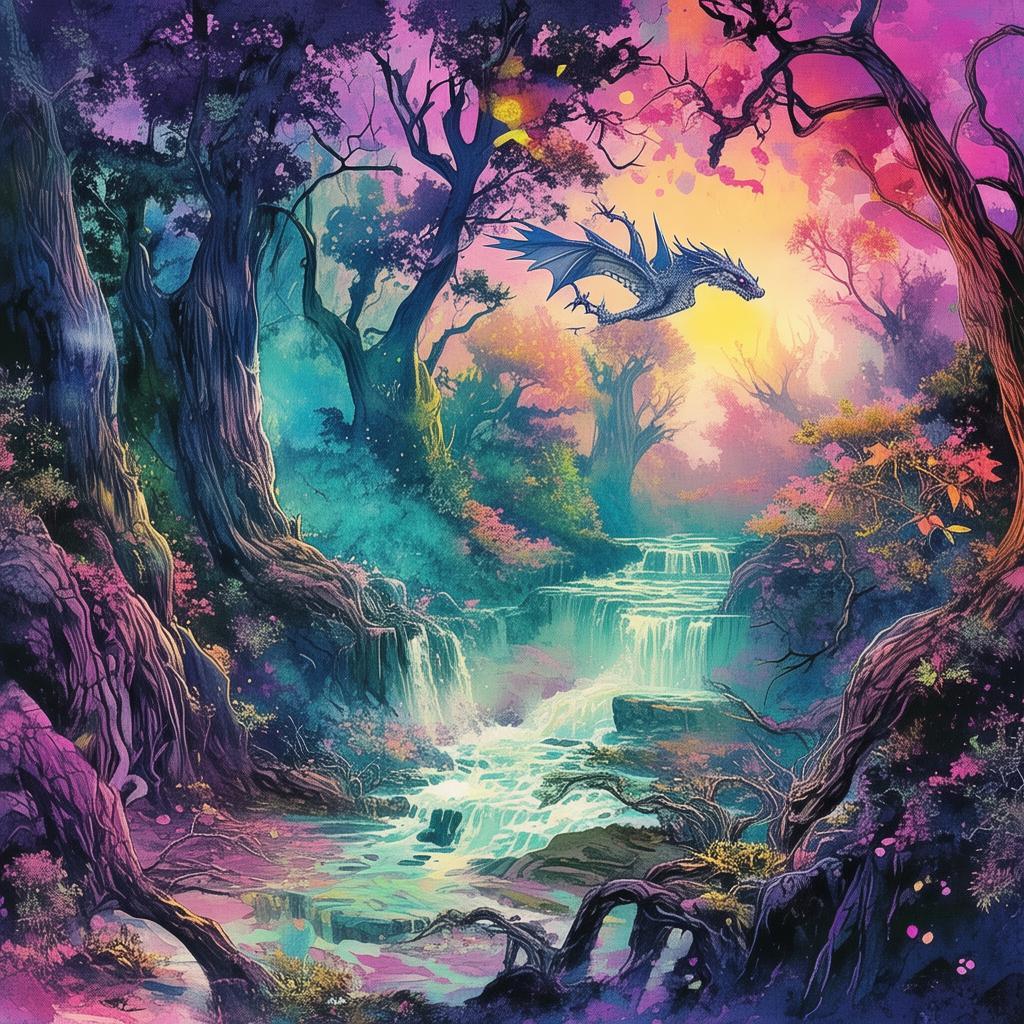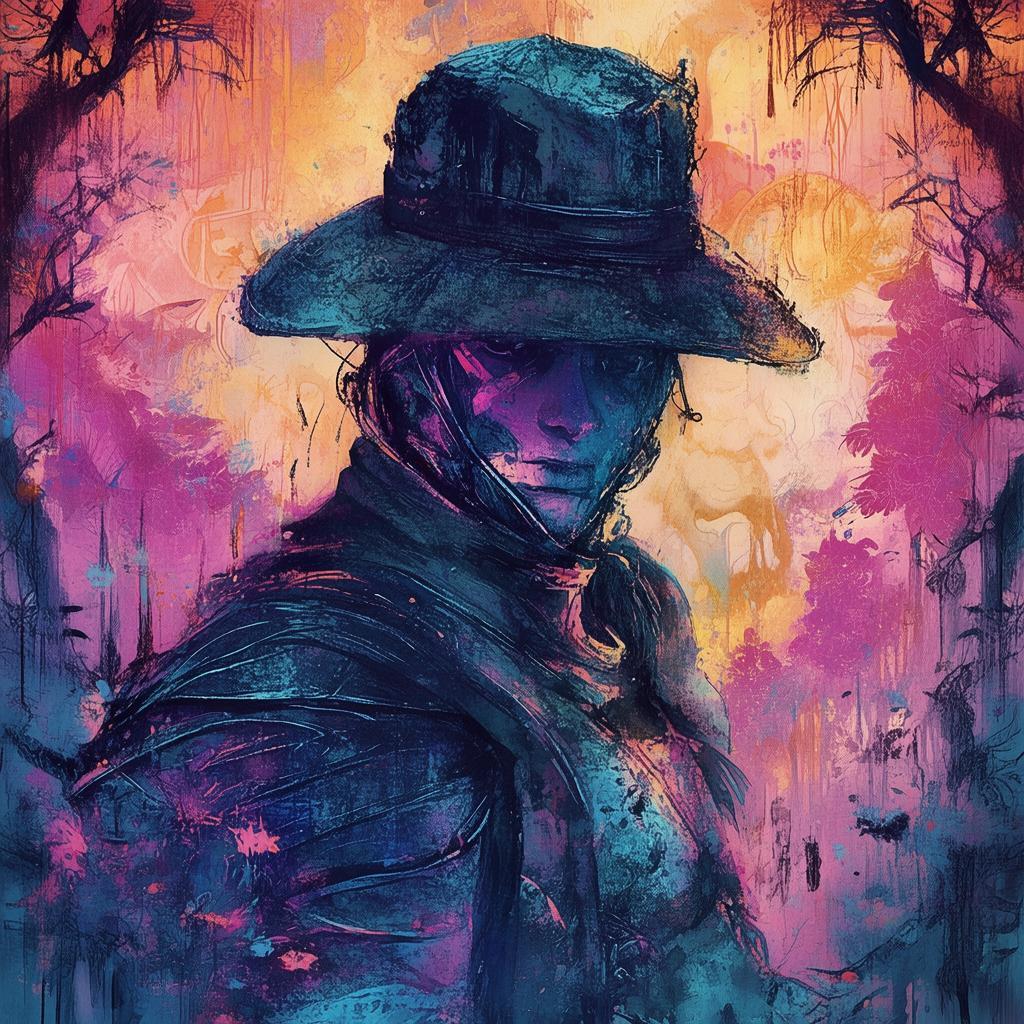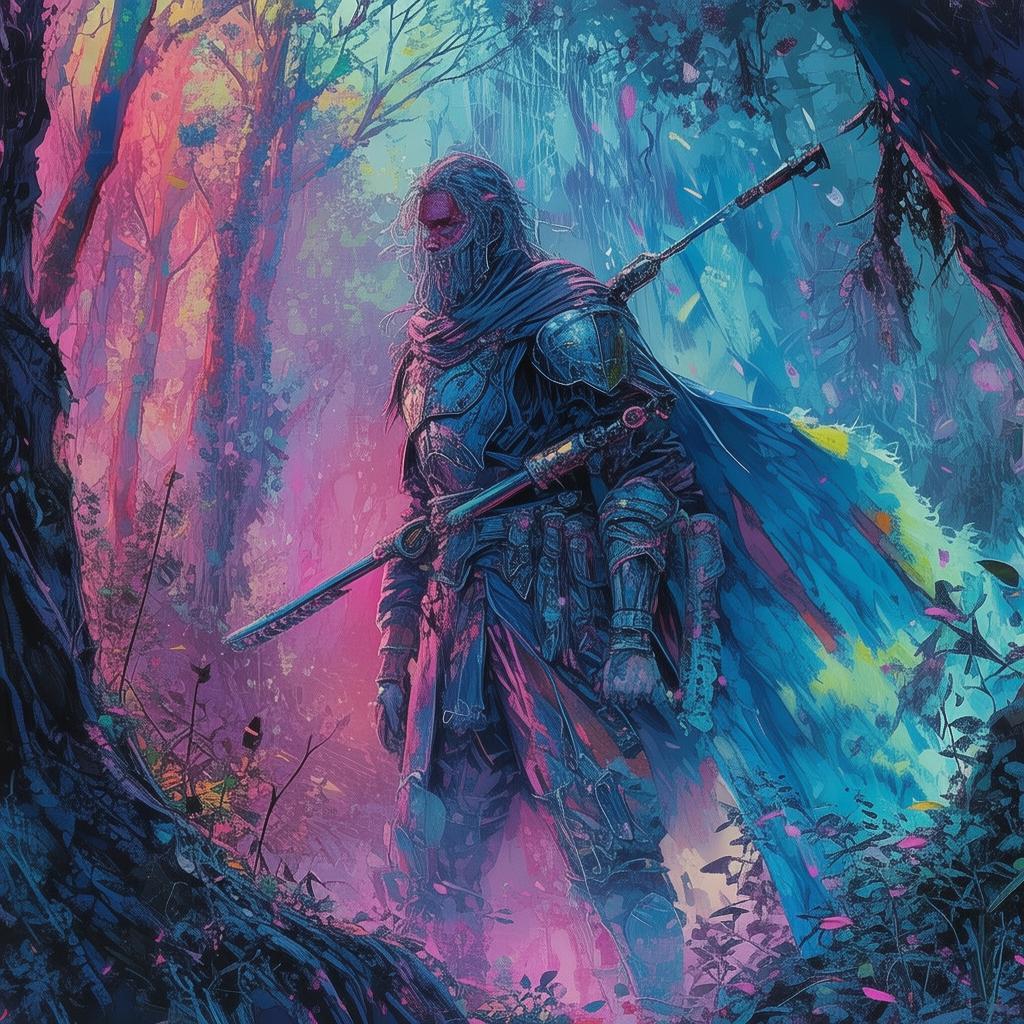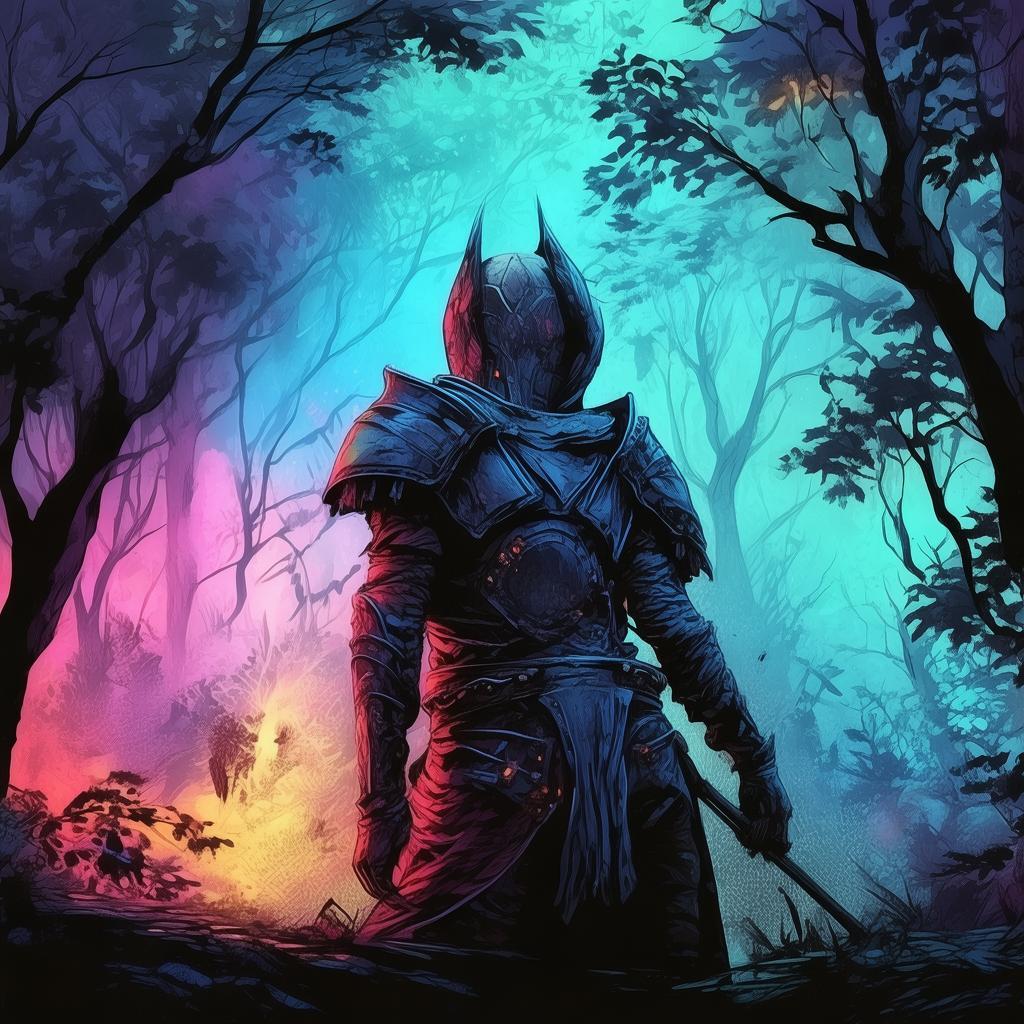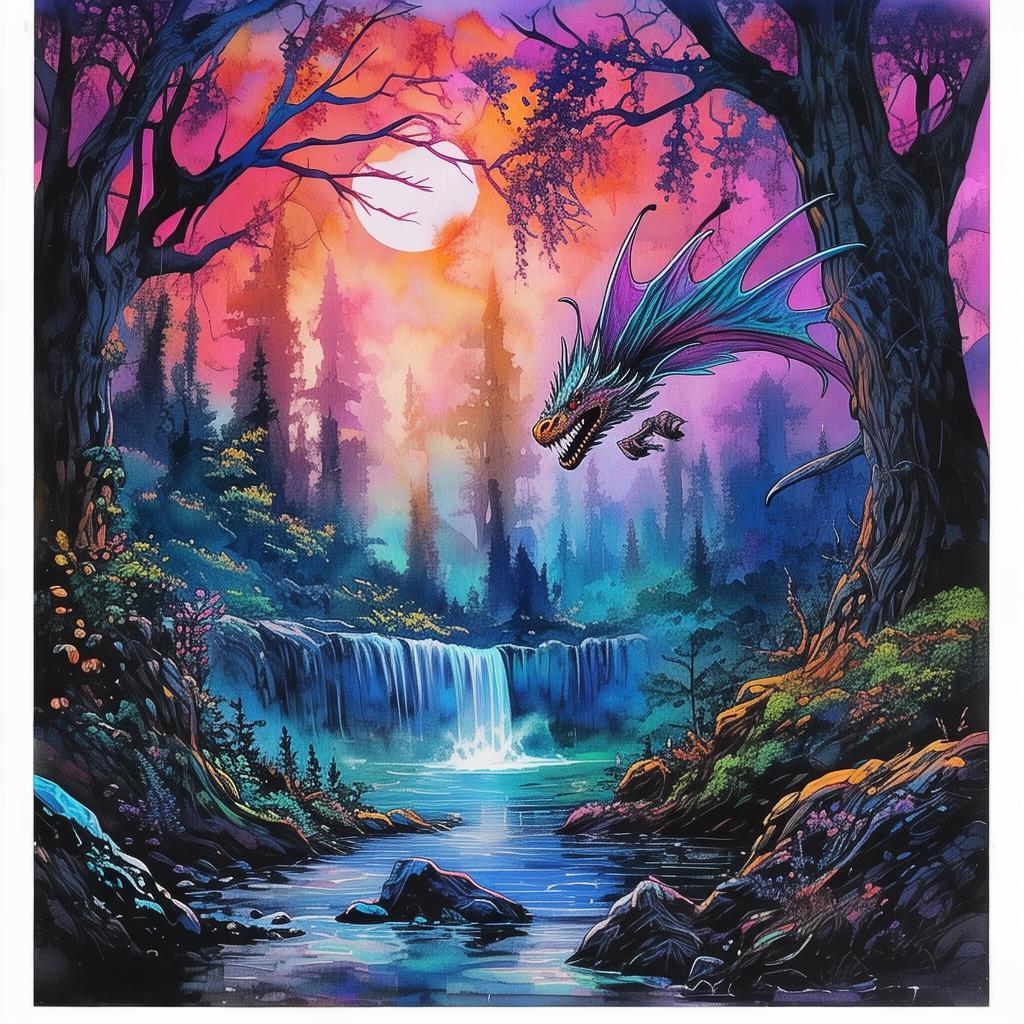Whispers of the Fallen Monk: The Unseen Path to Redemption
In the serene mountains of ancient China, there lay a temple known as the Zenith Monastery, a sanctuary for those who sought spiritual enlightenment and martial mastery. Among the monks who lived there, none were more revered than Master Jing, a martial monk whose prowess in the martial arts was matched only by his wisdom and compassion.
Master Jing's story was one of legend, his name echoing through the land as a beacon of hope for those who had lost their way. He was a man who had walked the path of violence, a warrior whose blade had cut down countless enemies in the name of justice. But as he aged, he sought a deeper truth, a path that would unite his martial prowess with his spiritual awakening.
One fateful day, a young monk named Hua arrived at the Zenith Monastery, his eyes wide with the fire of a thousand suns. He had heard of Master Jing's fame and sought to learn from the man who had transcended the duality of life and death. But Master Jing saw more in Hua than just a desire to master the martial arts; he saw the seeds of a future conflict.
Hua was a man of strong will and a quick temper, a former soldier who had been scarred by war. He had once sworn an oath to serve his country, to protect the innocent from harm. But in the chaos of battle, his sense of justice had been eroded, and he had become a creature of violence, driven by a thirst for revenge.
As Hua trained under Master Jing, the master began to teach him not only the techniques of the martial arts but also the ways of the heart. He spoke of the importance of forgiveness, of understanding that every act of violence is a cycle that can only be broken by the power of compassion.
One evening, as the moon hung low in the sky, Master Jing called Hua to his quarters. "Hua," he began, his voice soft yet filled with gravity, "there is a path before you, and it is not the path of violence. It is the path of redemption."
Hua's eyes narrowed, the fire of his former life flickering in his gaze. "What do you mean, Master? I have lived my life for the sword, for the thrill of battle. What could redemption mean to a man like me?"
Master Jing's eyes held a depth of understanding. "Redemption is not about the past, Hua. It is about the future, about choosing a path that does not repeat the mistakes of the past. It is about forgiveness and the strength to let go of the anger that binds you."
But Hua was not ready to let go. He had enemies, men who had wronged him, who had taken the lives of those he had sworn to protect. He could not forgive them, not while they walked the earth free.
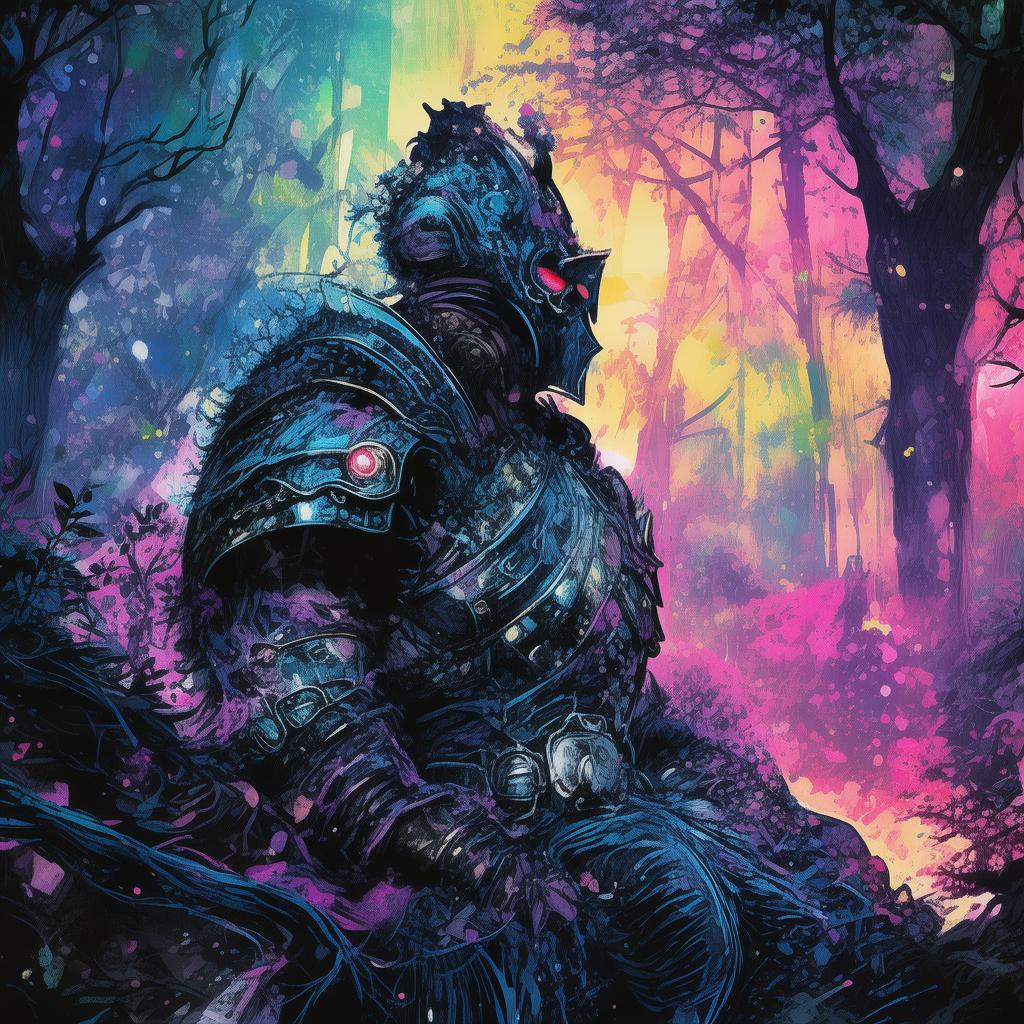
One night, as the monastery lay in slumber, Hua made his decision. He would leave the temple, not to fight, but to seek out his enemies and exact justice upon them. He would not be bound by the chains of anger any longer.
Master Jing, who had seen the seeds of Hua's doubt, knew that the young monk's departure was inevitable. As Hua prepared to leave, the master called him to his side. "Hua, before you go, I give you a gift," he said, handing Hua a small, ornate box.
Inside the box was a scroll, inscribed with ancient characters. "This scroll holds the secret of the unseen path, the path of forgiveness. If you ever find yourself at the end of your rope, if you feel the weight of your past too heavy to bear, open this scroll."
Hua took the scroll, his heart heavy with the burden of his decision. "Thank you, Master," he whispered, and with that, he left the Zenith Monastery, his path before him uncertain.
The years passed, and Hua wandered the land, a ghost of a man, his heart heavy with the weight of his past. But as he journeyed, he came to understand the truth of Master Jing's words. He began to see the cycle of violence that had consumed his life, and he realized that the only way to break free was through forgiveness.
He sought out his enemies, not to kill, but to forgive. Each encounter was a struggle, a battle of wills, but in the end, Hua found that forgiveness was the greatest strength of all. It was the power to let go of the past and embrace the future.
When Hua returned to the Zenith Monastery, he was a changed man. He no longer carried the weight of his past, and his heart was filled with peace. Master Jing welcomed him back with open arms, and together, they walked the path of forgiveness, teaching others the power of compassion and the unseen path to redemption.
And so, the story of Master Jing and Hua became a legend, a tale of a martial monk who had transcended the duality of life and death, and a young man who had found his true strength in the power of forgiveness.
✨ Original Statement ✨
All articles published on this website (including but not limited to text, images, videos, and other content) are original or authorized for reposting and are protected by relevant laws. Without the explicit written permission of this website, no individual or organization may copy, modify, repost, or use the content for commercial purposes.
If you need to quote or cooperate, please contact this site for authorization. We reserve the right to pursue legal responsibility for any unauthorized use.
Hereby declared.



